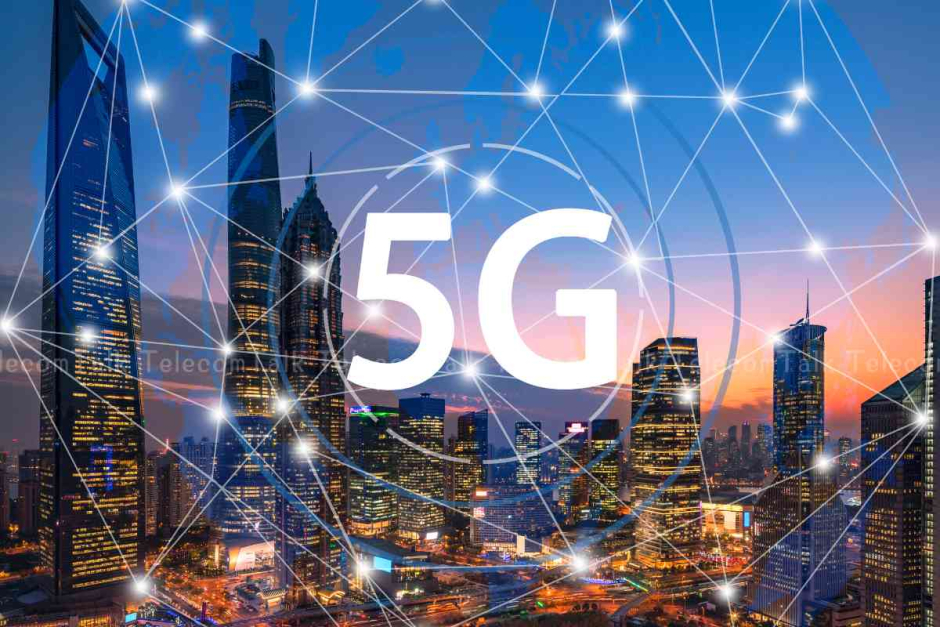According to Syed Amin Ul Haque, the federal minister for information technology, Pakistan’s economic crisis, and unstable political circumstances are affecting the country’s efforts to bring 5G internet services.
However, he assured us that they are in touch with telecom companies and trying to introduce 5G in major cities by the end of the year.
Haque also acknowledged the importance of the IT sector in the country’s economy, citing how the youth are earning foreign exchange for Pakistan through freelancing. He said that it is the government’s responsibility to provide facilities to support this backbone of the economy.
While briefing the National Assembly Standing Committee on Information Technology held under the chairpersonship of Naz Baloch, the officials of Information Technology, Pakistan Telecommunication Authority (PTA), and representatives of cellular companies said that the 5G technology launch in Pakistan would be impossible amid the electricity price hike and other related matters.
The telecom sector representatives told the committee that the profit margin of the industry has reduced significantly due to the recent economic crisis. The officials informed the panel that out of the total profit earned by the mobile companies, 1.5 percent was going to the Universal Service Fund.
They said that owing to the serious financial crunch facing the country, cellular companies could not import telecom-related gadgets, as letters of credit could not be opened, which is hampering service.
They asked the committee to forward recommendations to the federal government to solve their problems. Officials of the IT Ministry told the meeting that the reason for financial crimes was illegal SIMs and recently some 52,000 such SIMs were confiscated. The PTA had launched live biometric verification to counter the issuance of illegal SIMs. Now, he said, the SIMs would not be issued through dummy fingerprints.
The PTA officials said that the stringed several challenges and impediments including low handset and optic fiber cable (OFC) penetration, increasing inflation, low average revenue per user (ARPU), and rising operating expenses (OPEX) coupled with high taxation to launch 5G services in the country.
They said that to begin with, 5G handset penetration in the Pakistani market is a major impediment; the percentage of 5G-supported handsets in the country is less than one percent.
The officials said that while many developed countries have deployed 5G technology, Pakistan is beset with challenges in offering the said services. Further, low OFC penetration, fewer potential use cases, lower tower density, increasing inflation, low ARPU, and rising OPEX such as an increase in the prices of fuel and electricity, coupled with high taxation are some of the key factors that can potentially impact the 5G launch.
The minister added that freelancers are facing difficulties in receiving payments due to issues such as difficulty in opening accounts and queries from the Federal Board of Revenue (FBR). The IT Ministry is working with the State Bank of Pakistan and FBR to address these issues.
On a positive note, Haque shared that Google and TikTok have registered in the security exchange in Pakistan, and the government is in discussions with other major companies such as Facebook and Twitter to establish their offices in the country.
International projections suggest that by the end of 2026, 5G will attract 3.5 billion subscriptions, thereby, generating approximately 45 percent of the world’s total mobile traffic data.
According to officials, Pakistan’s large population, coupled with its potential for further economic growth, makes access to 4G and the timely launch of 5G services an absolute imperative. 5G is creating unprecedented opportunities for people and businesses alike, more so because its usage transcends the ICT sector.
The officials further stated that the introduction of 5G is extremely important for Pakistan to keep pace with regional developments. Despite challenges, which need to be addressed before a comprehensive 5G policy is issued by the government, the PTA and the MoITT are making joint efforts to formulate the Infrastructure Sharing Framework, Spectrum Re-farming Framework, Spectrum Sharing, National Roaming, and Ease-of-Doing Business to accelerate 5G deployment.
Once policy directions are in place for the commercial launch of 5G services, the PTA will accordingly seek the services of a consultant to devise a suitable auction design with comprehensive recommendations including incentives for investors, rollout models, implementation models, and diverse use cases development involving verticals.
Aligned with the government’s 5G roadmap, the PTA will also work with the industry and other stakeholders to provide detailed recommendations on the 5G rollout in Pakistan. To support 5G, we need to increase the percentage of Fibre-To-The Tower/Site (FTTT/FTTS). Other technological developments and innovations for broadband proliferation such as Wi-fi 6E for enhanced latency Augmented and Virtual Reality (AR/VR) etc. will also be facilitated.
Read More:












